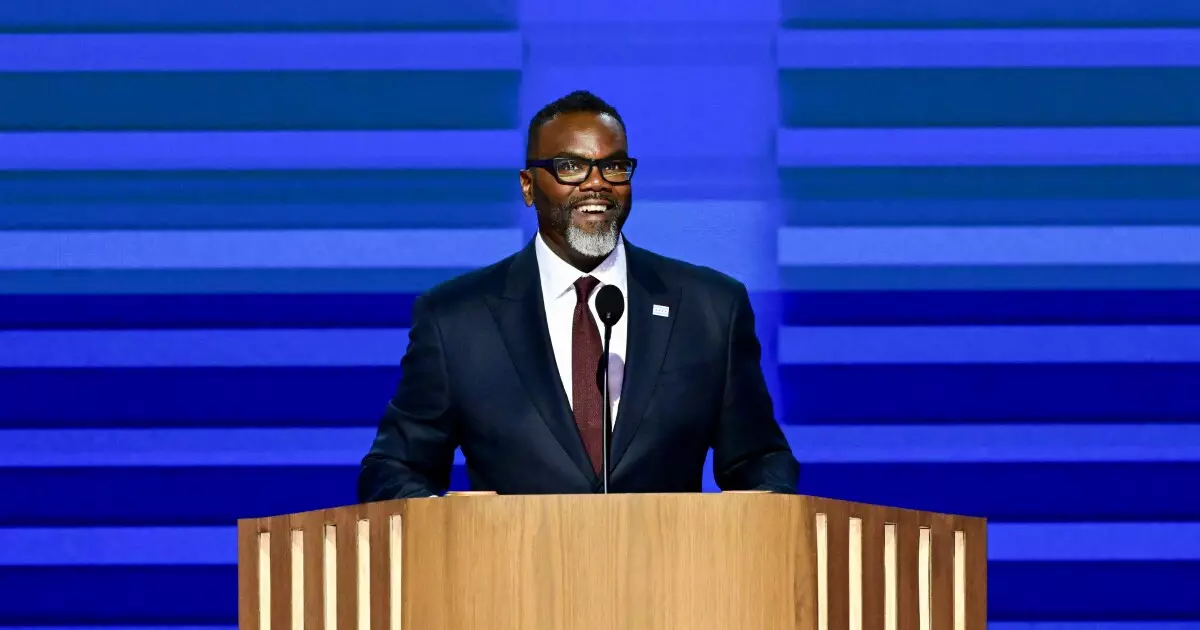Chicago’s financial landscape is at a pivotal juncture, marked by the recent decision of Kroll Bond Rating Agency (KBRA) to place the city’s general obligation bond rating on a “Watch Downgrade.” This development comes as the City Council gears up to vote on a controversial $300 million property tax increase proposed by Mayor Brandon Johnson in his budget for 2025. The backdrop to this decision is a foreboding $982.4 million projected shortfall in the corporate fund for 2025, which raises significant questions about the city’s fiscal management and strategic planning.
KBRA’s concerns highlight underlying issues that have plagued Chicago’s budgeting process. These include an over-reliance on one-time solutions to bridge budget gaps, increased pressure from pension obligations, dependency on volatile revenue sources, and delays in the budgeting timeline, which if not addressed, could exacerbate the city’s financial distress. As these factors converge, Chicago’s efforts to restructure its financial commitments and ensure sustainable growth remain critical.
The Property Tax Increase: A Double-Edged Sword
Originally positioned as a necessary step to mitigate the budget shortfall, the proposed property tax increase simultaneously represents a significant policy shift for Mayor Johnson. This departure from his earlier campaign promises has sparked intense debate among stakeholders, including residents and city officials. A report by the Civic Federation of Chicago cautioned that property tax hikes should be viewed as a last resort, suggesting that alternative measures could be more beneficial for the long-term economic health of the city.
Rating agencies have exhibited some support for the property tax increase, viewing it as a potential sustainable revenue source that could contribute to alleviating the city’s structural budget gap. For instance, Fitch Ratings and S&P Global Ratings praised the proposal’s potential to ensure consistent revenue flow. However, the backlash from 29 city aldermen, who have advocated for a separate vote on the tax increase, underscores the contentious atmosphere surrounding this budgetary proposal and the diverse agendas at play within the City Council.
The decision-making process surrounding Chicago’s budget reflects broader governance issues that have been a persistent theme in the city’s history. Critically, the city’s heavy reliance on non-recurring revenues not only undermines fiscal sustainability but also poses significant risks for future budget cycles. Such practices sow the seeds for structural imbalances that can lead to deeper financial turmoil down the road. KBRA specifically warned against the dangers of neglecting established financial policies, particularly concerning the city’s budget stabilization fund and pension obligations.
Moreover, the upcoming decision on refinancing up to $1.5 billion of the city’s debt raises additional questions about the city’s ability to maintain financial integrity amid rising costs associated with pension funding and debt service. Without a robust strategy that emphasizes long-term financial planning and revenue diversification, Chicago risks perpetuating a cycle of fiscal instability.
As the City Council deliberates on the 2025 budget, the need for consensus between the mayor’s administration and council members becomes critical. The recent indications that the proposed property tax increase may be significantly scaled back signal a potential shift towards exploring alternative revenue sources, including federal stimulus funds and other reprogrammed revenues. This realignment could provide a temporary reprieve but raises the question of whether such measures will adequately address the city’s long-run fiscal challenges.
For the city’s financial health and operational sustainability, it is imperative that elected officials prioritize structural reforms that reduce dependency on unpredictable revenue streams. This includes implementing a comprehensive approach to pension reform and a greater commitment to adhering to established financial principles. By focusing on transparent budgeting processes and fostering collaboration across governance levels, Chicago can navigate its fiscal hurdles more effectively, paving the way for a resilient economic future.
Ultimately, Chicago’s current fiscal tribulations serve as a reminder of the necessity for forward-thinking governance that prioritizes long-term stability over immediate fixes. The position taken by KBRA is emblematic of the broader concerns held by financial analysts and citizens alike regarding the city’s financial trajectory. As Mayor Johnson and the City Council move forward with crucial budgetary decisions, they must balance the urgency of present challenges with a commitment to resilient and responsible financial management that respects both the city’s history and its future aspirations.

